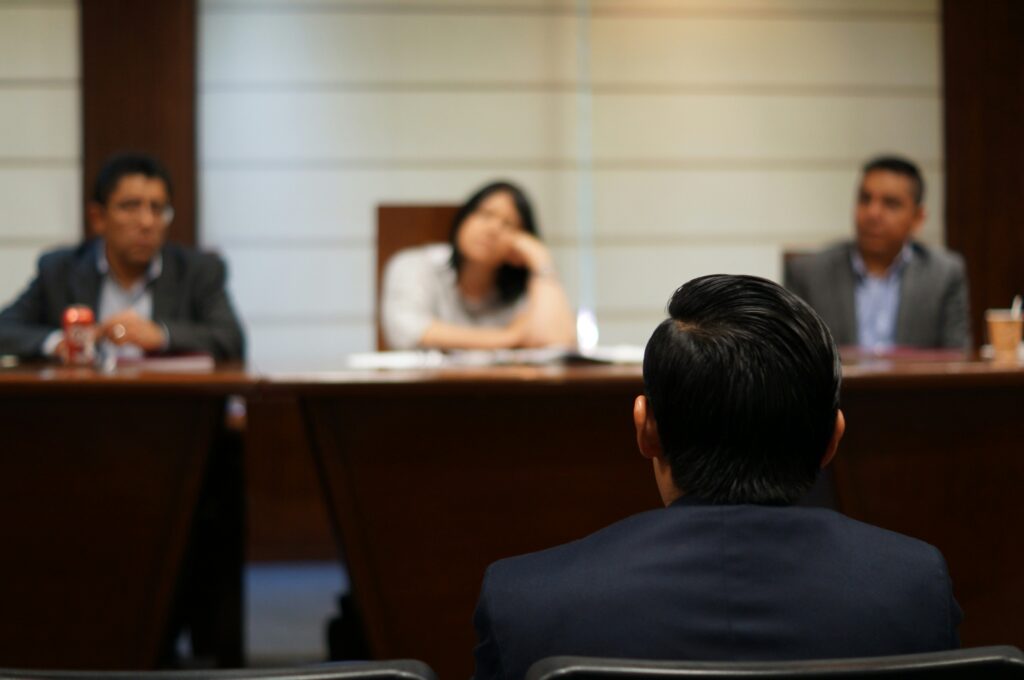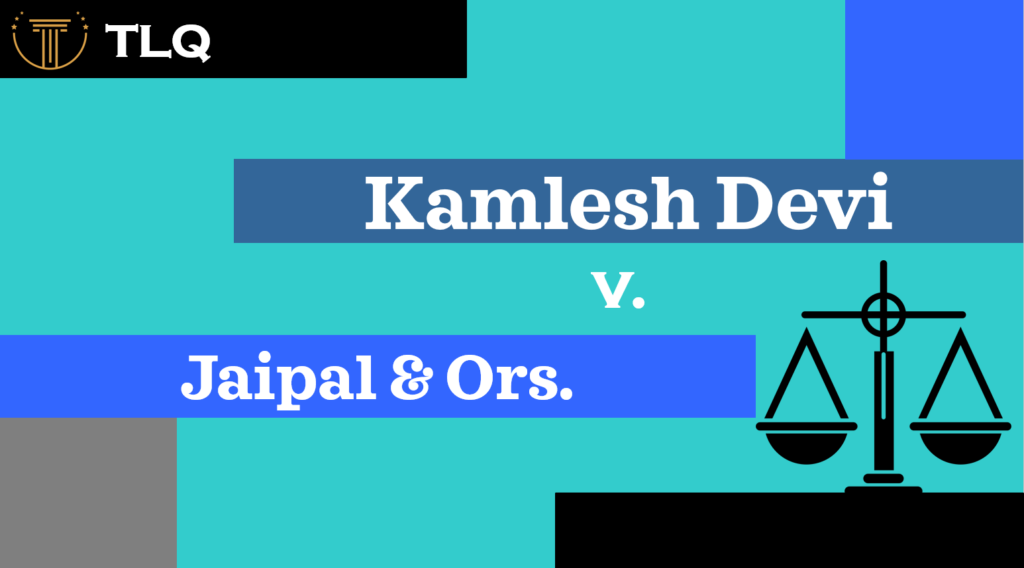Published on 12th February 2025
Authored By: Tashu Chauhan
Bharati Vidyapeeth, Pune
Introduction
The Karikho Kri v. Nuney Tayang case stands as an important milestone in the interpretation of electoral laws in India. The Supreme Court’s judgment stresses the need for a balanced approach, one that ensures substantial compliance with the Representation of the People Act, 1951, while recognizing that not all omissions are significant enough to invalidate an election. The Court’s focus on the materiality of the omissions, rather than a strict adherence to procedural requirements, is a key takeaway from this case.
Facts
In the 2019 Arunachal Pradesh Legislative Assembly elections, Karikho Kri contested as an independent candidate from the 44 Tezu (ST) Assembly Constituency and won against Nuney Tayang, a candidate from the Indian National Congress. Nuney Tayang then alleged that Kri had failed to disclose certain assets, particularly motor vehicles owned by his family members, and had not submitted a ‘No Dues Certificate’ for government accommodation he had previously occupied. These omissions were claimed to be in violation of the disclosure requirements stipulated in the Representation of the People Act, 1951.[2]
The High Court of Arunachal Pradesh, in response to Tayang’s petition, declared Kri’s election invalid, asserting that the failure to disclose assets and the omission of the No Dues Certificate were significant enough to affect the integrity of the election process. This judgment was subsequently appealed by Kri in the Supreme Court.
Issues
- Whether the ownership of several vehicles (Hero Honda CD Dawn Motorcycle, Kinetic Zing Scooty, Maruti Omni Ambulance, and TVS Star City Motorcycle) owned by the candidate or his family members was not disclosed in the election affidavit, as required by Clause 7(vi) of the Conduct of Election Rules, 1961[3], and if this non-disclosure invalidates the nomination?
- Whether the returned candidate, Shri Karikho Kri, failed to submit a No Dues Certificate for electricity charges while occupying MLA Cottage No. 1 at ‘E’ Sector, Itanagar, from 2009-2014, in violation of Clause 8(ii)(b) of Form No. 26 of the Conduct of Election Rules, 1961?
- Whether the candidate’s statements about liabilities for Municipal Tax, Property Tax, and other dues were inaccurate or incomplete, rendering the nomination defective?
- Whether the non-disclosure of assets belonging to the candidate, his wife, mother, and sons, as required in the election affidavit, constitutes the commission of undue influence under Section 123(2) of the Representation of the People Act, 1951?
- Whether the election of Shri Karikho Kri to the Tezu (ST) Assembly Constituency should be declared void under Section 100(1)(d)(i) of the Representation of the People Act, 1951, due to the non-disclosure of assets and other procedural lapses?
- Whether the non-disclosure alleged by the petitioner is of a substantial nature that impacts the fairness of the election?
- What relief the petitioner is entitled to if the election is declared void?
Supreme Court Bench
- Justice Aniruddha Bose
- Justice Sanjay Kumar
Legal Framework
The Representation of the People Act, 1951, lays down the legal framework for the conduct of elections in India. Several sections of this Act were central to the case, particularly Section 33 and Section 125A.
- Section 33 of the Act mandates that every candidate seeking election must submit an affidavit disclosing details such as their assets, liabilities, criminal antecedents, and other personal information. This ensures transparency in the electoral process and allows voters to make informed decisions.
- Section 125A outlines the penalties for candidates who fail to submit accurate information or make false declarations. While this section does not specifically mention minor omissions, it forms the foundation for cases where electoral integrity is questioned due to incorrect or incomplete affidavits.
Furthermore, previous judicial precedents in Indian electoral law, such as K.K. Verma v. Union of India[4] and other cases, have emphasized that the non-disclosure of assets or any other required information in a nomination affidavit should be evaluated based on its material impact on the election. This case, therefore, called for a careful examination of whether the omissions were significant enough to invalidate the election.
Court’s Analysis
The primary issues under review in the present case were the non-disclosure of certain motor vehicles owned by Kri’s dependent family members and the failure to provide the required No Dues Certificate for government accommodation.
Non-Disclosure of Vehicles: The Supreme Court observed that the vehicles in question had either been sold or gifted before Kri filed his nomination papers. While it acknowledged that these assets were not disclosed in the affidavit, the Court concluded that the non-disclosure did not materially affect the election. This was because the vehicles were no longer in Kri’s possession at the time of filing the affidavit, and their omission did not influence the fairness or transparency of the election process. The Court’s decision reflected a nuanced approach, recognizing that minor or technical omissions should not be automatically construed as grounds for invalidating an election. It stressed the importance of distinguishing between omissions that have a tangible impact on the election outcome and those that are peripheral and do not affect the electoral process substantively.
Failure to Submit No Dues Certificate: The failure to submit the No Dues Certificate, which is required for candidates who have previously occupied government accommodation, was also scrutinized by the Court. The Court determined that while the omission of this document was a procedural lapse, it did not alter the overall fairness or integrity of the election. The Court found that the failure to submit the certificate was not a material factor in influencing the voters’ decision or the election’s outcome. The Court’s judgment reiterated that not every error or omission in the nomination affidavit could be treated as a violation that necessitates disqualification. The focus should be on the materiality of the omission in relation to the electoral process. Minor errors or inadvertent omissions should not be viewed as grounds to annul an election unless they have a direct impact on the election’s fairness.
Materiality of Omissions: In assessing the significance of the omissions, the Court emphasized the need for a case-by-case evaluation of each electoral dispute. The judgment made it clear that omissions or discrepancies in the nomination process should not be viewed in isolation but should be assessed based on their material impact on the election. The Court’s reasoning suggested that minor omissions, such as those in this case, do not necessarily undermine the credibility of the election process. The Court’s focus on materiality was crucial in reinforcing the principle that electoral laws should be interpreted in a manner that upholds the integrity of the process without being overly rigid or punitive in the case of minor lapses.
Precedents Cited
- In Naveen Kumar vs. Vijay Kumar and Others[5], the High Court of Assam determined that the individual in whose name the motor vehicle is registered should be regarded as its owner.
- In Association for Democratic Reforms vs. Union of India[6] and reaffirmed in PUCL vs. Union of India[7], the Court held that the right to information under Article 19(1)(a) includes voters’ access to information essential for democratic participation. It ensures voters can make informed, rational, and intelligent choices when casting their votes, as voting is a key element of democracy.
- In S. Rukmini Madegowda vs. State Election Commission[8], the Court held that a false declaration about a candidate’s, spouse’s, or dependents’ assets amounts to corrupt practice, as it is presumed to impact the election regardless of its actual effect.
- In Santosh Yadav vs. Narender Singh[9], the Court emphasized that to annul an election based on the improper acceptance of a nomination, it must be proven that the election result was materially affected by this acceptance.
- In Harsh Kumar vs. Bhagwan Sahai Rawat and others[10], the Court reiterated that for an election to be set aside due to improper acceptance of a nomination, there must be clear evidence demonstrating that the election result was materially affected. In this case, the Court concluded that the petitioner failed to provide sufficient proof of such an effect or of the alleged corrupt practices, leading to the dismissal of the petition.
- In Surendra Kumar Bhilawe V. New India Assurance Co. Ltd, the Supreme Court held that the registered owner at the time of an accident remains liable under the Motor Vehicles Act, even if the vehicle was sold. The insurer cannot deny liability under a comprehensive policy, highlighting the importance of timely transfer of ownership to avoid legal risks.
- In Vashist Narain Sharma vs. Dev Chandra and others[11], the Court explained when an improperly accepted nomination can affect election results:
- If the candidate with the improper nomination got fewer votes than the gap between the winner and the runner-up, the result isn’t affected since the winner would still win.
- If the improperly nominated candidate got more votes, it could affect the result.
- If the improperly nominated candidate is the winner, the result is clearly affected.
So, only in the last two cases can the election result be materially impacted.
The judgment was reaffirmed in Kamta Prasad Upadhyaya vs. Sarjoo Prasad Tiwari and
others[12] and Arjun Panditrao Khotkar vs.
Kailash Kushanrao Gorantyal and others[13]
- In L.R. Shivaramagowda vs. T.M. Chandrashekar[14], a 3-Judge Bench held that to void an election under Section 100(1)(d)(iv) of the 1951 Act, the petitioner must specifically allege that the non-compliance with constitutional or statutory provisions materially affected the returned candidate’s election result.
Judgment
The Supreme Court’s judgment in Karikho Kri v. Nuney Tayang reversed the High Court’s ruling and upheld Karikho Kri’s election. The Court emphasized that the non-disclosures and omissions in Kri’s nomination affidavit were not of such significance as to invalidate the election. This judgment reinforced the importance of substantial compliance with electoral disclosure requirements and set a precedent for future cases dealing with similar issues of non-disclosure.
Significance
The Supreme Court rejected the High Court’s conclusion that the election should be annulled based on the omissions. By doing so, the Court underscored the principle that the non-disclosure of minor assets or documents should not automatically lead to disqualification, particularly when these omissions have no material bearing on the fairness of the election.
The ruling aligns with previous judgments that have sought to maintain a balance between ensuring electoral transparency and avoiding unnecessary disqualification based on minor errors or lapses in paperwork. This judgment serves as a reminder that electoral integrity must be assessed in context, and that minor lapses should not be treated as disqualifying factors unless they undermine the electoral process.
The case has far-reaching implications for the future conduct of elections. It provides clarity on how courts should approach election petitions involving non-disclosure or omissions in candidates’ affidavits. The judgment encourages a more practical and context-driven approach, which allows for the continuation of the electoral process unless the omission is substantial and affects the fairness of the election.
Conclusion
The judgment reflects the Court’s commitment to maintaining the integrity of the electoral process without unduly penalizing candidates for minor errors or lapses. It highlights the importance of evaluating each case on its merits, considering the specific circumstances and the overall impact of the omissions on the fairness of the election. Ultimately, the case reaffirms that the electoral process must be protected, but it should also accommodate practical realities and avoid unnecessary disqualification based on trivial discrepancies.
References
[1] Karikho Kri v. Nuney Tayang, 2024 SCC OnLine SC 519
[2] The Representation of the People Act, 1951
[3] The Conduct of Election Rules, 1961
[4] K.K. Verma v. Union of India, AIR 1954 BOM 358
[5] Naveen Kumar vs. Vijay Kumar and Others, (2018) 3 SCC 1
[6] Association for Democratic Reforms and another vs. Union
of India and others, W.P. (C) No. 880 of 2017, decided on 15.02.2024
[7] People’s Union for Civil Liberties (PUCL) and another vs.
Union of India and another, (2003) 4 SCC 399
[8] S. Rukmini Madegowda vs. State Election Commission, (2022) SCC OnLine SC 1218
[9] Santosh Yadav vs. Narender Singh, (2002) 1 SCC 160
[10] Harsh Kumar Vs. Narender Singh, (2003) 7 SCC 709
[11] Vashist Narain Sharma vs. Dev Chandra and others, (1954) 2 SCC 32
[12] Kamta Prasad Upadhyaya vs. Sarjoo Prasad Tiwari and
others, (1969) 3 SCC 622
[13] Arjun Panditrao Khotkar vs. Kailash Kushanrao Gorantyal and others, (2020) 7 SCC 1
[14] L.R. Shivaramagowda vs. T.M. Chandrashekar, (1999) 1 SCC 666




